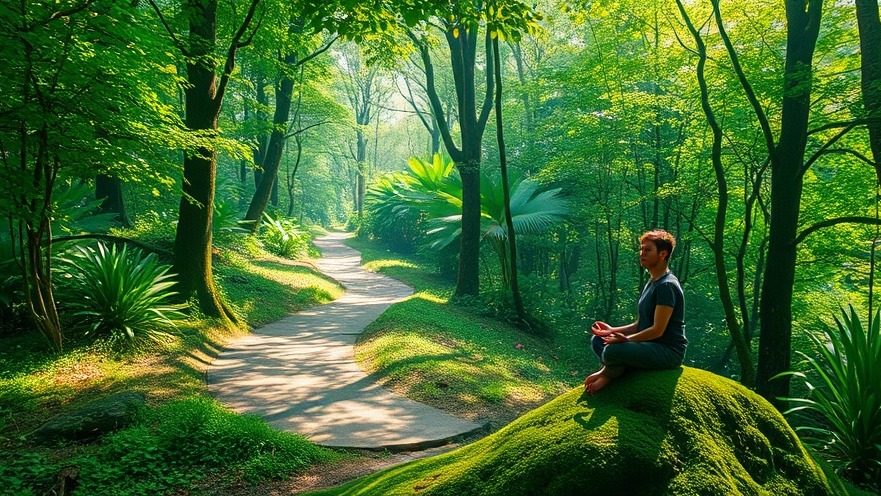
### Embracing Your Inner Wanderer: A Path to Freedom
In today’s fast-paced world, it’s easy for digital nomads to feel trapped in a cycle of daily routines, leaving their adventurous spirits behind. The struggle with mental health, amplified by constant travel and change, can make it seem as if they’re simply floating through life. However, at the heart of each traveler lies an archetype waiting to be accessed—the Wanderer. As J.R.R. Tolkien poignantly noted, "Not all who wander are lost," and this could not ring truer than for those seeking purpose on their journeys.
### The Wanderer Archetype Within Us
The concept of the Wanderer archetype is rooted in the psychological frameworks proposed by researchers like Carol Pearson, suggesting that this universal personality type can guide individuals through transitions in life. The Wanderer embodies a spirit of exploration, urging individuals to leave behind their comforts and venture into the unknown with courage.
A recent piece by Krissy Loveman highlights how embracing the Wanderer within oneself can be a profound source of creativity and strength during difficult times. Loveman's own journey reflects a quintessential aspect of the Wanderer—acknowledging when to shift paths. After finding herself constrained by a traditional desk job and subsequent health issues, Loveman tapped into her inner Wanderer, seeking a life that resonated more deeply with her needs and values.
### Recognizing Symptoms of the Wanderer
For many, the feelings of disconnection and uncertainty might feel overwhelming, but those serving as spiritual wanderers can find solace in understanding these signs. Signs include:
A longing for solitude in nature, where one feels a sense of belonging.
An inherent sensitivity to energy and feeling out of sync with societal norms.
A quest for identity and personal truth amidst external pressures.
As we take time to recognize these traits, we empower ourselves to embrace them as part of our spiritual journeys. Acknowledging the Romantic notions of wanderers—hermits, mystics, shamans—can encourage us not only to seek, but to cultivate a relationship with our inner selves.
### The Power of Solitude in Rediscovery
During periods of solitude, many people, including those who have traveled extensively, can find a renewed sense of self. A related article from LonerWolf articulates the critical role that solitude plays in enhancing one's identity. It suggests that alone time, particularly in natural settings, is essential for fostering insight and renewal. Disconnecting from social expectations offers the opportunity to tune into our inner voice, enabling better decision-making that aligns with our true paths.
This aligns closely with Loveman's experience; by stepping away from societal work constructs, she is cultivating a self-directed life driven by creativity and purpose. Thus, spiritual wanderers can reclaim their narrative—not only traveling physically but also exploring the depths of their inner landscapes.
### Building Community Through Shared Journeys
One of the extraordinary aspects of identifying with the Wanderer archetype is that it facilitates connection with others who share similar journeys. While the path may feel solitary, a community of wanderers exists, offering understanding and support. Travelers can find resonance through tales about overcoming fears, pursuing passions, or simply finding joy in the fleeting and the unfamiliar.
It is a beautiful paradox: the journey of the Wanderer is both personal and communal, allowing connections that go beyond mere companionship. As relationships deepen based on shared experiences, so too can our understanding of ourselves. This can immediately impact our mental health, allowing for healthy emotional boundaries without sacrificing personal growth.
### Letting Go of the Familiar
The true essence of the Wanderer encourages letting go of the familiar—to “bring forth the unseen” as mentioned in LonerWolf’s exploration of the spiritual twinship of wanderers. Those feeling stuck in an unfulfilling space, whether it’s a career or relationship, must acknowledge the discomfort that accompanies change. The decision to embark on a new path can be laborious, but the rewards are typically worth the risk.
Acknowledging and embracing this struggle invites proactive choices, and as any seasoned traveler knows, the unknown offers boundless possibilities for growth.
### Moving Forward: A Call to Action
So how can one effectively access their inner Wanderer? Start by allowing yourself space to reflect. Whether through writing, meditation, or spending quiet moments in nature, take the time to listen to what your Wanderer is yearning for. For digital nomads, this could be as simple as giving yourself permission to explore unknown paths or to reclaim playful aspects of life previously overshadowed by responsibility. It is time to let that inner voice speak clearly and authentically, guiding you towards not just a new adventure, but a life alive with meaning and passion.
Making the conscious choice to explore your inner landscape, much like traversing a new city, can lead to revelations that reshape your life. Embrace your internal Wanderer, take that leap, for your best adventures await!
 Add Row
Add Row  Add
Add 




Write A Comment